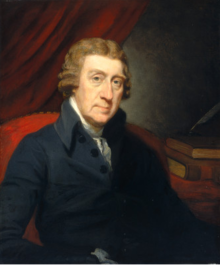“The Marriage was a nullity”
Yesterday I followed Sarah Gore and the uncle who raised her, the Rev. Henry Caner, from Boston to London after the end of the siege of Boston.
In April 1777 Caner gladly married the young woman to a Englishman named Richard Manser. The minister anticipating leaving her in Britain with her husband while he returned to America as soon as all the troubles were over.
However, by the summer Caner was referring to his niece once again by her first married name, as in his 5 August leter to Dr. John Jeffries: “Mrs. Gore & Nurse desire to be remembered in this.”
Finally on 10 Jan 1778 Caner broke the news to Sarah Gore’s father, deacon Thomas Foster of Boston:
Sarah Gore and her young son John did return to Boston, as did her father-in-law, John Gore. The younger John grew up to be a merchant, factory investor, and Federalist. In 1805 he managed to get three volumes of King’s Chapel records back from Caner’s heirs. He died in 1817.
(Incidentally, the “Lady Dartrey” who offered help to Sarah Gore in her time of trouble was a granddaughter of William Penn with the given name of Philadelphia Hannah Freame.)
In April 1777 Caner gladly married the young woman to a Englishman named Richard Manser. The minister anticipating leaving her in Britain with her husband while he returned to America as soon as all the troubles were over.
However, by the summer Caner was referring to his niece once again by her first married name, as in his 5 August leter to Dr. John Jeffries: “Mrs. Gore & Nurse desire to be remembered in this.”
Finally on 10 Jan 1778 Caner broke the news to Sarah Gore’s father, deacon Thomas Foster of Boston:
By a Line from your Son Wm inclosing a Letter to our Dear Sally, I am inform’d of the Death of your Son John. I sincerely condole with you & Mrs. Foster on so melancholy an event. And am sorry that I must add to your affliction by acquainting you with an expected misfortune that had befallen your & our dear Child.In the end, the Rev. Mr. Caner never returned to America. Though strapped for funds without a pulpit, he took a second wife and settled in Cardiff in 1778; she was notably younger, but then he was in his late seventies, so she almost had to be. Later he moved to a town near Bristol and died in 1792.
In a former Letter I acquainted you that Sally was married, & we thought happily to a Gentleman of very promising appearance, but to my grief has turn’d out a villain.
They had been married but 5 Weeks, when Lord Dartrey [an Irish baron, shown above as painted by Mather Brown] called upon me & acquainted me that Mr. Mansor had a Wife living in a remote part of London at the time when he was married to Sally. This you may believe was like a Thunder Clap to me.
However as soon as Mansor came home I acquainted him with it, & turnd him immediately out of Doors.
The same Evening I made the matter known to Sally in the tenderest manner I was able. She fainted & with much difficulty could we recover her. To be short it went very near to cost her her life. With great Care & Attention, & the Assistance of several kind Ladies of rank & quality, she has in some measure got the better of it. Her health & flesh & strength & spirits are return’d & she is now Sally Gore again.
The Marriage was a nullity, as he had a wife at the time of his marrying Sally, so she has reassumd the Name of Gore, by which she is now known to all her friends & Acquaintance.
The former Wife is since dead & the Villain has had the Assurance to write me several insolent Letters…demanding my Sally as his lawful Wife. A Number of worthy friends have offer’d their service to vindicate her against his impudent Claim. Among others Lord Percy, & particularly the Noble Lord & Lady Dartrey, are so exceedingly obliging that they have offer’d to foot [?] the whole Expence if Mrs. Gore finds it necessary to prosecute the vilain.
In short, I am greatly comforted under this misfortune to find that the dear Child is restor’d to her health & spirits again.
Sarah Gore and her young son John did return to Boston, as did her father-in-law, John Gore. The younger John grew up to be a merchant, factory investor, and Federalist. In 1805 he managed to get three volumes of King’s Chapel records back from Caner’s heirs. He died in 1817.
(Incidentally, the “Lady Dartrey” who offered help to Sarah Gore in her time of trouble was a granddaughter of William Penn with the given name of Philadelphia Hannah Freame.)


No comments:
Post a Comment